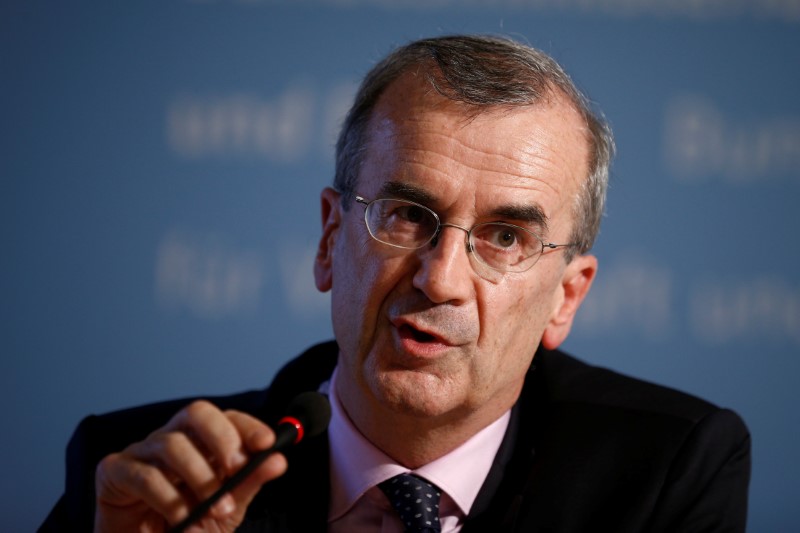By Stanley White
TOKYO (Reuters) - Italian voters' defeat of a referendum on constitutional reforms cannot be compared to Britain's vote to leave the European Union, European Central Bank policymaker Francois Villeroy de Galhau said on Monday.
Policymakers will still look closely at the consequences of Italy's decision, Villeroy, who is also governor of the Bank of France, said at a seminar in Japan.
Villeroy also warned Britain there will be no "cherry picking" on market access as it negotiates its divorce from the EU.
Italian Prime Minister Matteo Renzi has vowed to resign after suffering the crushing referendum defeat on Sunday, tipping the euro zone's third-largest economy into political uncertainty.
"The referendum in Italy yesterday may be deemed as another source of uncertainty," Villeroy said.
"However, it cannot be compared to the British referendum: Italian people have been called to the polls to vote on an internal constitutional matter, and not on Italy's long-standing EU membership."
The euro
In contrast, Villeroy expressed confidence in the resilience of the euro zone, citing progress in merging banking regulations, improving economic growth and a tightening labour market.
The ECB meets Dec. 8 in Frankfurt. At that meeting the ECB will extend its bond purchases beyond March and consider sending a formal signal that the programme will eventually end, senior sources with direct knowledge of discussions have told Reuters.
Before the referendum, central bank sources told Reuters the ECB is ready to temporarily step up purchases of Italian government bonds if the referendum sharply drives up borrowing costs for the euro zone's largest debtor.
Britons' vote to leave the euro zone has also become a source of concern for financial markets, but there is still a lot of uncertainty about its negotiating strategy six months after the vote.
Villeroy on Monday issued a harsh warning that Britain should not expect a special deal that curbs immigration while maintaining access to Europe's single market.
"If they want to keep full access to the European single market, they will have to apply all its rules," Villeroy said.
"There can be no free riding and no cherry picking. If Britain were to chose a 'hard Brexit' this would in particular mean the end of the European passport for the City of London."
Passporting allows the City of London financial centre to do business with clients in the euro zone even though Britain never joined the common currency.

London banks handle trillions of euros in business, so a "hard" Brexit in which Britain loses its free access to the EU would have serious consequences.